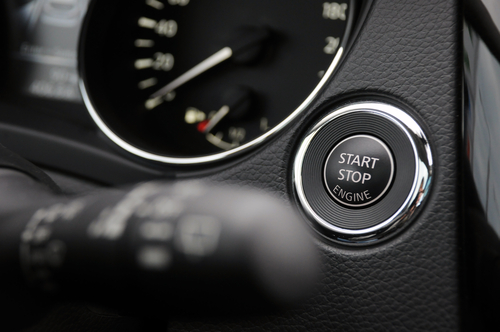Hyundai certainly grabbed a lot of attention with its new car advertisement in the UK, although it may not be the kind they were wanting. The Korean car company put out a 60 second commercial that shows a man attempting to commit suicide while starting his Hyundai iX35 inside of a closed garage. The commercial was entitles “Pipe Job.”
Hyundai’s intention was to show off the car’s low emissions and how its main byproduct is harmless water. Social media was very hard on the company with tweets that shared how the commercial was hurt those who had dealt with loved ones committing suicide. A very heart wrenching letter was received by a London advertising copywriter who shared:
“When your ad started to play, and I saw the beautifully-shot scenes of taped-up car windows with exhaust feeding in, I began to shake. I shook so hard that I had to put down my drink before I spilt it. And then I started to cry. I remembered looking out of the window to see the police and ambulance, wondering what was happening. I remember mum sitting me down to explain that daddy had gone to sleep and would not be waking up, and no, he wouldn’t be able to take me to my friend’s birthday party next week. No, he couldn’t come back from heaven just for that day, but he would like to if he could. I remember finding out that he had died holding my sister’s soft toy rabbit in his lap”
Her letter continued on her blog also sharing her father’s suicide note. Hyundai released an apology note after all their criticism, “We understand that some people may have found the iX35 video offensive. We are very sorry if we have offended anyone. We have taken the video down and have no intention of using it in any of our advertising or marketing.” Hyundai America even issues a response to the ad, “We at Hyundai America are shocked and saddened by the depiction of a suicide attempt in an inappropriate UK video featuring Hyundai. Suicide merits thoughtful discussion, not this type of treatment.”
It is shocking to see how different the marketing and advertising was so different in various countries, and how the company, as a whole, did not have stronger marketing approval processes it had to be submitted through.
Even more shocking was the statement by the American Foundation for Suicide Prevention, “We know from research that graphic depictions of suicide in the media can inadvertently lead to further suicides, a phenomenon known as contagion,” said Robert Gebbia, executive director for the American Foundation for Suicide Prevention. “This advertisement was particularly graphic and potentially dangerous. We are pleased that Hyundai has decided to pull this campaign. That said, we hope that advertisers and companies realize that suicide is a worldwide health problem that claims more than 1 million lives each year, taking an enormous toll on family, friends, co-workers and entire communities and it should not be used to sell products.”
Although not the first time that we have been shocked by advertising, it is surprising to see it used by a company who appeals to families as a target market. It makes you ask questions about more than just this advertisement. How is the media affecting the community and is it positive or negative? And was this Hyundai’s purpose all along? Is negative publicity better than no publicity?
Source: Mashable, “Hyundai Makes Light of Suicide, Ignites Internet Firestorm,” Charlie White, April 25, 2013.
